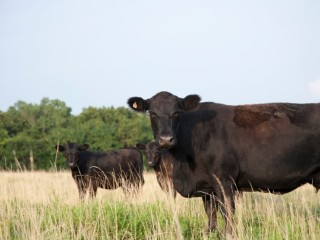 The headline in the weekend’s Sunday Age gave a taste of what was to come: “Some say cows are killing the earth. So do we need to ban beef?”
The headline in the weekend’s Sunday Age gave a taste of what was to come: “Some say cows are killing the earth. So do we need to ban beef?”
The following article quoted a vegan, a vegetarian, a conservationist and a climate change scientist to build the case that livestock are destroying the planet and meaningful reductions in greenhouse gas emissions can only be achieved with a general move towards plant-based diets.
Vegan Paul Mahony pointed to joint 1990s research from the CSIRO and the University of Sydney that linked 30pc of Australia’s greenhouse gas emissions to animal agriculture.
A contrasting figure, which highlighted the confusion that exists over actual emission levels, was quoted from the Department of Climate Change. It suggested that 20pc of Australia’s greenhouse gas emissions are derived from animal agriculture, which included the effect of carbon dioxide released by deforestation to create land for ruminants.
The article also cited data which showed that the environmental footprint of ruminants went well beyond their greenhouse gas emissions alone.
“They are inefficient converters of food to energy consuming, on some estimates, up to 54 kilograms of feed to produce just one kilogram of beef,” the article said. “And when they graze in arid zones, cattle degrade the quality of soil and increase the size of deserts, a process called "desertification".
However the claims made against animal agriculture in the article were either outdated or non-representative of available data, according to Meat and Livestock Australia.
Tom Davison, MLA’s manager for environment, sustainability and climate change, said the latest Australian Government National Greenhouse Gas Inventory attributes only 10.2pc of Australia’s total greenhouse gas emissions to the livestock industry.
Most came from methane which is produced by the natural digestion process of cattle and sheep.
Further, research released in 2011 by CSIRO found that the amount of methane emitted from cattle fed on tropical grasses in northern Australia was up to 30 per cent less than the figures currently used to calculate the northern cattle industry's contribution to Australia's greenhouse gas accounts.
If this methodology is endorsed by the National Greenhouse Gas Inventory, the industry's overall contribution mentioned above will be further reduced.
Mr Davison said emissions from beef production in Australia had decreased by 6.5pc per kilogram since 1990.
“Due to improved productivity, the age to market of animals is decreasing while at the same time the amount of meat being produced from each animal, on average, is increasing due to more efficient production methods.”
In relation to feed conversion rates, common practice was well below the 54 kilograms of feed to produce one kilogram of beef as quoted in the Sunday Age article.
“For grain fed beef the standard industry rate is approximately 8kg of feed per 1kg of dressed beef for young cattle, and approximately 14kg of feed per 1kg of dressed beef for older cattle,” Mr Davison said.
“For grass fed beef, CSIRO estimates that between 7 to 12kg of feed to produce 1kg of weight gain for steers feed at pasture. In terms of dressed beef, this equates to 11 – 18.7 kg of pasture consumed per kg of dressed beef.”
Another point raised by the Sunday Age article was that the most efficient way to produce food was to grow crops. The next most efficient was to feed crops to monogastric (single-stomach) animals such as pigs and chickens, and the least efficient way was to feed crops to a four-stomach ruminant and then to feed humans.
However MLA pointed out that ruminants were able to convert grass into food for humans.
“It is important to remember that when ruminants eat pasture they are converting cellulose to an edible product for human consumption,” Mr Davison said.
“They are not grazing feed that humans can either digest or utilise. Nor are they using feed that a monogastric can utilise.”
In a separate article on the Sunday Age website, Melbourne University climate change scientist Dr Richard Eckardt said that while ruminants were a significant part of the greenhouse problem, pulling livestock out of the rangelands would only exacerbate an already-stringent food production problem.
Ruminants not only ate crops unfit for human consumption, they were the only easily farmed creatures which could turn grass into food for people, he said. Much of the grassy rangelands in Australia and worldwide would never be suitable for crops.
Related article: Cattle emissions 30pc lower than previously thought
